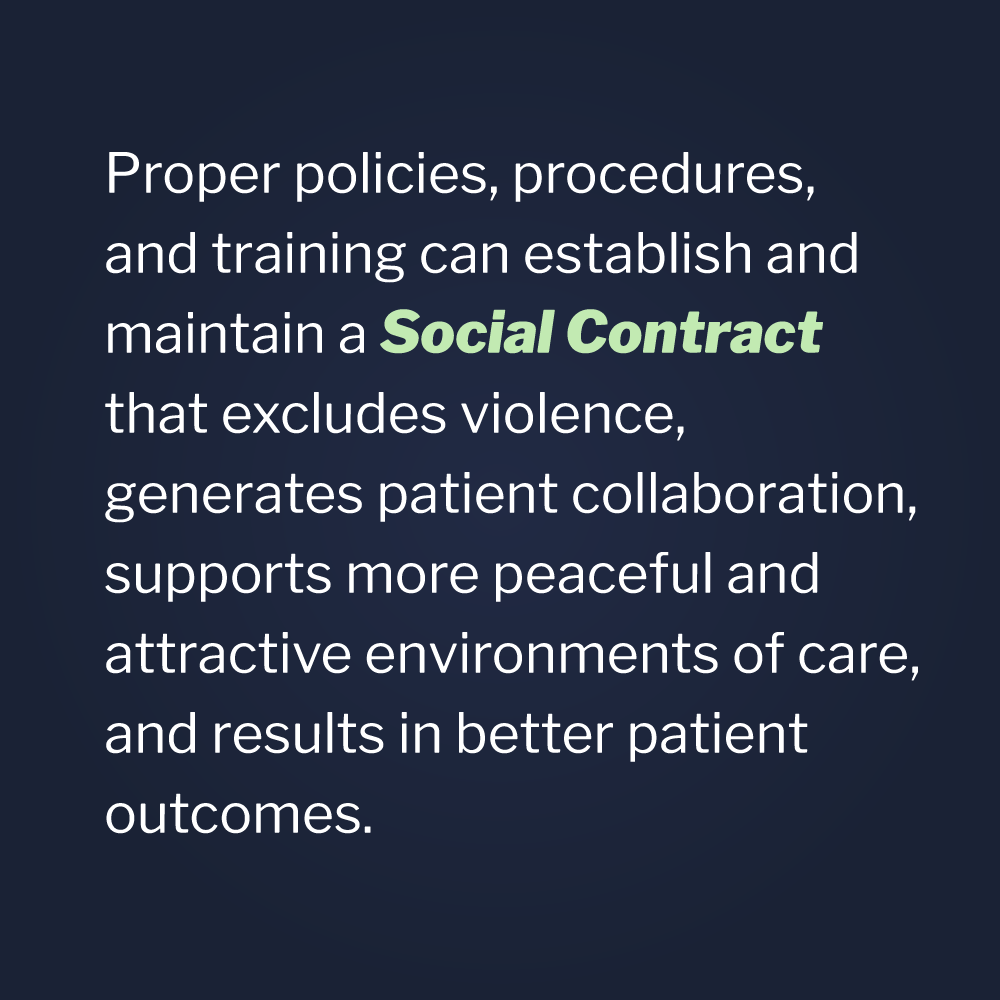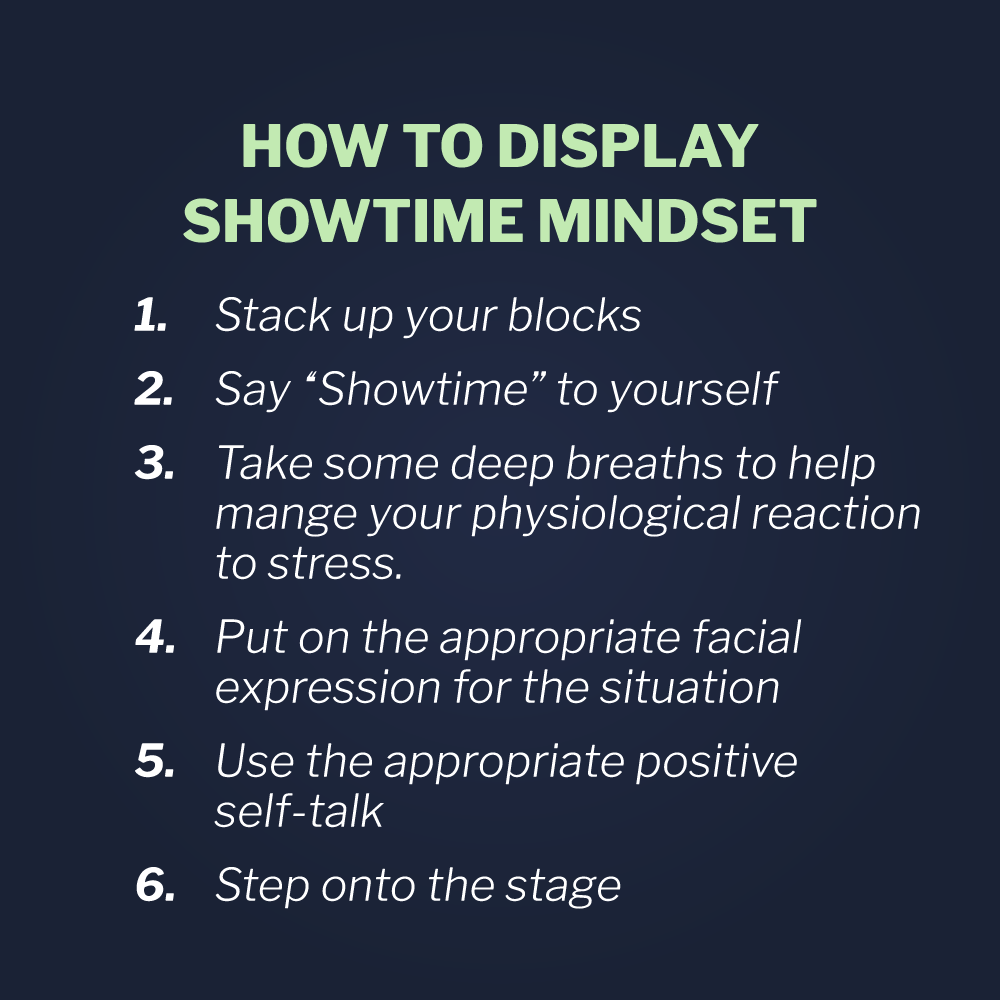“What’s So Special About a Greeting?” - Episode 3
Host: Al Oelschlaeger
Guest: Dave Young
Subscribe to our podcast on Apple Podcasts, Stitcher, Google Play or YouTube.
Dave Young is a master trainer and co-founder of Vistelar. He has extensive experience in martial arts, security, and is a former marine. In his line of work he’s seen it all. Today, Young shares one of his first experiences on the job as a young security guard. Young’s ability to carefully observe potentially threatening situations formed the basis for many of the techniques he now teaches. Listeners are in for a treat as seasoned storyteller Young shares why the Universal Greeting is so impactful in any situation.
To learn more about non-escalation, de-escalation, and personal protections visit vistelar.com
Allen Oelschlaeger: Okay. We’re here with Dave Young, one of the co-founders of Vistelar. And Dave, you’re just telling me about being out in Colorado Springs. Tell me a bit more about that.
Dave Young: Al, it was an amazing event. There was a little under a thousand participants if you can imagine that, from ages 4 to 80. There was actually a couple there that were in their 90s that were performing. And it’s a martial arts competition. It’s called the U.S. Open or Hanmadang, as it’s referred to. They had seven countries represented there: Trinidad, Germany, Australia, just from all over. I got to meet martial arts school owners, parents, families, students, martial arts practitioners from pretty much all over the country.
Allen: And you’ve done this for a few years, haven’t you?
Dave: Yes. I headed up the security about four-and-a-half, five years ago. And then, with it being such a national event, we work with the Department of Justice to make sure that we’re screening and vetting everybody coming in internationally. We have safety briefs and we have training that we do throughout the year through podcasts and webinars. And using the technology allows us to reach out to these people from all over the country.
Allen: Very, very cool. Yeah, so that’s every summer. So yeah, if anybody’s a martial artist and they want to see some great stuff, it’s called Hanmadang, right, Dave? And it’s annual, every year. And it’s in that Colorado Springs area.
Dave: Yes, they have it in Colorado Springs because Grandmaster Sang Lee was the first U.S. taekwondo coach and that’s where his school is based out of.
Allen: Very cool.
Dave: Pretty historical for the martial artists to come in and they get a tour of Colorado Springs, the Olympic training center. And great weather, so, it was a great event all the way around.
Can conflict compromise your safety?
Allen: Cool. Okay, so, tell me about what’s the story we’re going to talk about today to deal with conflict?
Dave: Well, I hear this from a lot of different people, “Can conflict compromise your safety?” That’s one of the first questions I ask. And people tip-toe around it. Some say yes immediately. Others say no just as fast. And then there’s a lot of people that teeter in the middle. So, I normally like to share this story with them so they can understand where I’m coming from because conflict, if not handled correctly, that plants a really bad seed, which can inspire violence, as you see across the country. Or it can inspire cooperation and can actually, sometimes conflict, certain levels like good and bad cholesterol can improve a relationship. In the early-
Allen: I love it. A little interruption here is that this whole thing of conflict, as you know, you and I talk about conflict all the time and it’s just one of those words we talk about because that’s what we do for our job. But it’s really something that doesn’t get discussed a lot. I’ve found that when you ask people about conflict, it’s something they just haven’t thought about. And once you talk to them a bit, they go, “Wow. Yeah, yeah, yeah.” I mean, conflict, yes can actually be something that just gets, kind of is okay and it’s just the way people interact with each other but also can turn into a pretty big mouse.
Dave: Well, I think a lot of people out there, they just don’t understand the definition of conflict. They think if someone disagrees with them that you have a conflict situation. And disagreement by itself is not conflict. Someone can disagree with you, you can work through it as long as both people remain rational. Sometimes tone of voices vary. But the definition of conflict is a gray area because it’s based on how you perceive the other person’s words. And like I said before, some conflict can be very good. It helps organizations grow, challenge what they were doing in the past that might not have had the results they needed, and it can improve relationships as well. So it’s good and bad.
Allen: Yep. Yep. Well, you’re going to share a bad one, so why not, yeah, go ahead and tell your story.
Dave: Well, I was born in Brooklyn, New York. When I was six, my dad left pretty much shortly after I was born and my mom moved us to Hialeah, Florida where I grew up. Then I graduated college in 1980 and went to play water polo at Long Beach City and Long Beach State College in California. I took a job at 18 years old working as a shoplifting agent at Sav-on Drugs. And I guess it was either because of the neighborhood I grew up in, what I was used to, my ability to physically handle myself as well as verbally, I was put and assigned to work in Inglewood, Watson, Compton, California.
Allen: There we go.
Dave: And those areas are just as bad if not worse now than they were then. But it was pretty intense. So I want you to imagine this. I go to water polo practice from 4:30 in the morning till about 7:00. I go to college from 8:00 till about 3:00 in the afternoon. And then I catch three buses to get to Inglewood, California at the first Sav-on Drugs.
Dave: As I got off the bus, you could see the whole culture changes as you change buses to get to where you’re going. I show up in Inglewood, and right across the street from the parking lot, from where we were, you could see the ambulance there, the coroner’s truck was there, the police department was there. And I’m going, “Wow, this is my first day at work.” So as I walk across the parking lot, there was a lot of stuff happening. If you’re not familiar with the makeup of the store, they have the main store in the middle where you have all your cash registers up front. And then they sold everything pretty much to what like Walgreens and Rite Aid sell now, minus a grocery store section.
Allen: Are they still around?
Dave: But to the far right-
Allen: Is Sav-on still around?
Dave: Absolutely. There’s like 300 stores now in California.
Allen: Oh, okay. I don’t think we have one, any up here in Milwaukee. But anyway, go ahead.
Dave: On the far right-hand side when you leave, there’s an ice cream section. So a lot of kids come in off the street, get ice cream and leave. They go get ice cream when their parents are shopping. But on the opposite end is the liquor section where they sell beer, wine. And you keep them separate for a reason. But as you walk into the store, in this particular store, on the left was the liquor area. There was a chalk line of a dead body. Several liquor bottles were broken, liquor all over the floor. Some of the employees were cleaning up, some were crying. This just happened, like probably-
Allen: This was your first day on the job, Dave?
Dave: Yeah, this was about, it happened two hours before I got there.
Allen: Oh, well.
Dave: But what happened, well, was probably my whole point on why I really think people should understand that conflict, if not handled correctly, plant some negative seeds to have a very negative and sometimes violent outcome. So you have this liquor manager who handles that area and kids come in off the street, they’re either trying to steal that Mad Dog 20/20 or that sangrita or whatever they’re drinking, and beer. And so I’m sure he gets a lot of hostility. But as I started reading some of the reports six months, eight months before, there were a lot of verbal altercations between this particular manager and coworkers.
Allen: Ah, yep.
Dave: He was rude. He uses position to bully people. Very disrespectful, whether you’re a man or a woman, whether you were black or white, it didn’t matter your race, your nationality. He just had one switch and it was his way or the highway. And there was no time to get to know anybody before he talked to them. But he’s been there for five years. So every time, I started going through some of the other reports, not only was he reported by the coworkers, but there were several from the customers. And some of the reports, the kids who are 16, 17, some were 30, 40, 50, even some of the people that are in their late 60s and 70s. There were some reports of this particular person being just either verbally aggressive or just downright unprofessional. Definitely not an employee anybody who runs an organization would want them to be a part of.
Allen: This is where the customers were actually complaining and those were getting into reports, is that-
Dave: Yes, absolutely.
Allen: Oh, wow.
Dave: Then I started reading some of the complaints he had. And as you start reading the incident, I’ll give you some examples. A 16-year-old, which you can’t be in this area unless you were 18, it says it pretty clear as day. He would start out with cussing like, “What the F you doing here?” Without asking them. There was also a bathroom in that area that several people would elevate to use that restroom if it was closer for them. But there were several legitimate reasons why people could wander in that area if they weren’t going to buy liquor. And he was just aggressive. Because he knew the area, grew up in that neighborhood, he felt he had a little bit more leeway with people. He thought his perceptions of people were right. I’m just telling you from a kid who grew up in the streets, we all wore our pants the same way, our shirts. And if you looked at us the wrong way, back in the day, that could inspire violence almost immediately.
Dave: So this particular incident actually started six months before he was shot. There was one complaint that a couple walked in there to get a six-pack of beer, and they had their 16-year-old. While he was with his parents, three or four other kids from the neighborhood, some were of age, some weren’t of age, came into the liquor area to buy some liquor. And he was very rude and very short with the kids. As the parents tried to intervene because they knew some of the kids because they knew that particular boy, son, he was very rude to them. He was belittling them about the way they dress, calling them illiterate, thugs. And there were some other words you probably don’t want to say. But I want you to kind of think about every time you see this person, there’s negativity. He’s either cutting you down or-
Allen: Exactly, yep.
Dave: Well then, they started having acts of vandalism after the reports. Several customers said he should be removed from the area. But when the manager left at six o’clock at night, the regular manager, he became the store manager. So there was another worker that would work the cash register. And of course, they ended up closing down because of the cash register not being watched. If you had to buy liquor, you had to get ahold of this manager. So, he would still verbally chastise everybody that would come into that area. Well, this kid that was initially with the family, was kicked out of the… He came into the store to use the bathroom. The manager was working one night. They got into an argument. He disrespected the kid, from what I could read in the report, and the kid picked up a liquor bottle that you could grab without walking in that area and threw it on the floor, and vandalized the bottle, and ran out of the store.
Dave: Manager reported it. They called the cops. They filled out a report. They banned the kid for 30 days. And then every time that boy’s friends would come into the store, this manager would just verbally ride them. 30 days later, the kid got accepted to come back in the store. The parents were really nice. They brought the boy in to see the manager. He apologized. And this went on for about two or three more months. Now we’re talking about three months from the initial incident. He started getting threats. His car was vandalized. They broke his side window, they’d bent his antenna one time, they flattened his tire the next, they kicked in his car door. So, for about two or three months after that, he was spending a lot of time dealing with the fallout of all the negative contact he had with people. Well, I guess this was when the management first talked to him because I did see a counseling in his folder that he was suggested to go to anger management training. There was no follow up in his report that he did.
Dave: Then they put him to work in another store for 30 days. Then he came back. About the fifth month, which was a month before he was killed, he was back at the store. This kid initially that was with the family was now part of this group. It was a gang in town, a local gang. He just kept, he never let the situation go when the boy got kicked out. “Don’t make me call your parents again. You’re just being a little hoodlum. You’re going to end up in jail soon.” And he said some other negative things and it just built and built and built. Then the kid turns 18. And he’s legally able to go into the store. Of course, the managers treated him the whole time. He took his driver’s license out, showed him his driver’s license and he was able to buy some beer at that time. And they got into an argument, he cut him down again in front of some of his friends, and the kid pulled out a gun and shot him in the chest.
Allen: Wow.
Dave: And this could have been avoided.
Allen: Look, and Dave, just one thing, and I know you know this in spades but I mean, it’s a classic example. I’m sure there were people in the store that said, “Oh wow, boy, this was a big surprise. This came out of nowhere. Or why did this…” And you’ve done a lot of investigation of situations like this. There’s almost always a story like you just described where there was previous occurrences that if you were watching, you could kind of predict that things were going bad.
Dave: Yeah, Al, you can’t base an outcome and think that’s going to give you insight to the situation. You got to look at the journey and…
Allen: Yep, exactly.
Properly Managing Conflict
Dave: With conflict, you could tell this manager didn’t have any training. There were other managers there, had been there 17 years, didn’t have anything in their folder. They were kind, respectful, great people can have a bad day. But when you make that bad day every day, and you don’t do anything about it, two people yelling at each other, it just gets worse. One of you have to decide not to yell. So, there was a lot of things that could’ve been done differently. And when I went back, I had it provided-
Allen: So, how many years… Obviously, a bunch of years ago. So, you’ve probably over the years, you’ve learned a bunch of stuff through training and trial and error. Looking back at that, what do you think could’ve been done differently?
Dave: Well, I think it starts out with understanding the boundaries you have to set within an organization, how people are supposed to act. Setting that social contract, as we always say in our training, is what kind of an agreement can we have that we’re all going to treat each other with dignity, show them respect, what does that mean to you? But we have to… You can’t let your rank be how you act. Being a former Marine, we’ve always said your rank determines your pay grade. It should not determine your attitude. And I think you have to kind of look at your situation and treat everybody uniquely. But the same but kind of different because some people need that extra bit of hello, some people need an extra 15 seconds. Other people, you can talk to right away. And every situation is kind of different. If…
people are supposed to act. Setting that social contract, as we always say in our training, is what kind of an agreement can we have that we’re all going to treat each other with dignity, show them respect, what does that mean to you? But we have to… You can’t let your rank be how you act. Being a former Marine, we’ve always said your rank determines your pay grade. It should not determine your attitude. And I think you have to kind of look at your situation and treat everybody uniquely. But the same but kind of different because some people need that extra bit of hello, some people need an extra 15 seconds. Other people, you can talk to right away. And every situation is kind of different. If…
Allen: So, at one level, there’s clearly a leadership issue here where the leadership or the management of the store should have seen this much earlier. And then said, “Hey, there’s a certain way we treat customers around here and that’s not it. And we’ve got to change our approach.”
Dave: People seem to think that if you ignore conflict that it goes away. And what it actually does, it builds to be bigger. So you have to address it early on. There’s nothing wrong with… Like for me myself, when I started working there, I would go up and say, “Good morning. My name is Dave. I’m the security agent staff here for Sav-on Drugs. The reason why I’m talking to you is you walked in a secure area. Are you a new employee here?” And being able to tell a person who you are. We always talk about answering the four great American questions. Every time you just start talking to someone, in their mind, they’re saying, “Who are you?” And if they don’t like you, it’s going to be, “Who the hell are you?” They want to know who do you represent, why are you talking to them? “What’s in it for me? Why should I listen to what it is you’re saying?” And a lot of people trigger by tone of voice, and all this stuff has to be practiced.
Dave: We always refer to using a greeting that is acceptable no matter where you are. And before you even start this greeting, people are going to be looking at you from a distance. How are you-
Allen: And Dave, as you had said before, if you don’t do what you just described and introduce yourself and who you represent and all the steps you just went through, what’s going on in the other person’s mind is they’re filling in those blanks, assuming whatever it is, and it’s usually not good. It’s usually a bad assumption and then they can get worked up about it.
Dave: Well, I always tell people that if a person doesn’t like you, they’re never going to give you the benefit of the doubt. And if a person likes you, they’ll always let you forget something. So if you’re talking to people as a customer service representative, I have to treat everybody as if they would not like me, in the very beginning.
Allen: Exactly.
Dave: Because I don’t want to get in-
The Universal Greeting
Allen: So go through, just quickly, go through those. You said it and I think everybody on the… probably said, “Oh, that sounded pretty nice.” If you’d come up, said I’m Dave and whatever, just quickly go through those four steps again.
Dave: Sure. I would give them what we call the appropriate greeting. I’d go up and say, “Good morning, good afternoon.” I would address them sir or ma’am. If I knew their name, I would give their name. I’d say, “Good morning, sir, my name is Dave.” I let him know who I am, my first and last name. I’m not bashful about that. I tell them who I represent so they have an understanding that I’m representing the store. I’m not asking for directions, I’m not asking for money. They’re going to have a good understanding when I’m trying to set the context very early on before their perception of me is even formulated. So I’d give them the greeting. “Good morning.” I go up and tell them my name, “My name is Dave from Sav-on Drugs security team.” And then I tell them the reason why I’m there, so they understand why I’m talking to them.
afternoon.” I would address them sir or ma’am. If I knew their name, I would give their name. I’d say, “Good morning, sir, my name is Dave.” I let him know who I am, my first and last name. I’m not bashful about that. I tell them who I represent so they have an understanding that I’m representing the store. I’m not asking for directions, I’m not asking for money. They’re going to have a good understanding when I’m trying to set the context very early on before their perception of me is even formulated. So I’d give them the greeting. “Good morning.” I go up and tell them my name, “My name is Dave from Sav-on Drugs security team.” And then I tell them the reason why I’m there, so they understand why I’m talking to them.
Dave: It might be a reason that has their benefit. It might be a reason because they might be lost and I can get them to the right place, that they may have questions in their mind that this question of the reason why I’m talking to them could possibly be answered during this initial contact. And then I’m going to ask them a relevant question. In this particular case, if it was like a shoplifting scenario, I’d say, “Good morning, sir. My name is Dave. I’m with the Sav-on security team. And the reason why I’ve approached you today is you were exiting an area that kind of avoided the cash register, and it’s a law here in the state of California that all purchases have to be proven with a receipt. Do you happen to have a receipt for those batteries you put in your pocket?” Then it would go from there. And hopefully, you’d have a positive outcome. But let’s… I want to rewind this for a second.
Allen: Well, let me do it, but I want to make sure just drive home that fourth point is that relevant question. So you’ve gotten through those first three steps really quickly, right? Boom, boom, boom. But now you’re giving them the chance to talk. And it’s, as you and I have learned, that a lot of times just by itself of letting somebody else talk and then listening to them is a huge step in making sure that things don’t escalate.
Dave: Yeah. Because sometimes, the word you use, we always say, “Set the stage you have to perform on.” And the way I was trained was, “Hey, stop. Security.” And a person would automatically start running, even if he didn’t take anything.
Allen: Right.
Dave: I can remember-
Allen: I’ll remember that.
Dave: I can remember the first week after that incident, they brought someone in that was supposed to go through some psychological training with me to make sure I was okay, and to reinforce the procedures of the organization. And the first words out of his mouth was, “Hey, you, come here.” That really didn’t set a really good precedent. I worked in that store for about 18 months, in those three different areas, and I had a couple of violent situations. But I can honestly say that those violent situations would have been violent no matter how and what I would’ve done.
Allen: Sure, sure.
Dave: I didn’t have a car. When I eventually started driving, that got vandalized. I didn’t have people waiting for me after work. And quite frankly, Al, I saw the opposite take place. Because of the way I treated people in the store, if they were lost or they did steal and they gave me the item back and I followed the policies, people are definitely paying more attention to how they’re being treated during that situation than the outcome. I’ve had people standing out in the parking lot that when they saw other people waiting for me, they stuck around to make sure that I got in my car okay. That-
Allen: Exactly.
Dave: So I think, they always say that competency builds other people to be confident and competent as well. And I think that if people go into every situation that they have, understanding that if you set that initial social contract as we say, “Let’s have an agreement. I’m going to treat you the way, not only the way that I want you to treat me, but I’m going to treat you the way I want to betreated under those identical circumstances.” That sends a very powerful message no matter what environment or culture or area you’re really working in.
Allen: Yep. Well, and it’s so simple, right? I mean, like you said, “Hey, sir, guy, I’m security, stop.” It’s just, it’s clearly not the right approach, but it happens all the time. And what you’re describing is such a simple approach of just taking the initial four steps, letting the other person talk. A lot of times, that’s going to keep things from getting crazy.
Dave: And you have to-
Allen: So, okay, but if you went… Let’s just go back to the story and say, “Okay, that’s obviously…” If this guy would’ve had just a little training on how to start a conversation with people that are maybe doing something that needs to be corrected, that’s obviously a huge deal. But what else here? Then obviously, just being aware that things build over time and having some safety awareness of what’s going on so that this could’ve been dealt with earlier. But what would be the third thing that could have happened here to keep the shooting from happening?
Nonverbal Communication
Dave: We always refer to having the ability of managing your equilibrium. Quit saying how you feel and telling people how you feel about it, and start managing what you say and be more responsible with your facial expressions, your tone of voice, precision of word choice. You pick the words that come out of your mouth because that’s what they’re going to hear. And way before you even make contact with them, you got to watch your nonverbal cues. How am I walking? Am I walking too quickly? Am I walking like, as I get closer I’m going to tackle them? And I want them to be happy when I get there. Or do I have the look of death on me that as soon as I get there they’re going to explode? Who-
Allen: Just listening to your story, Dave, I mean, it’s clear that you can just, at least for me, I can picture in my mind, because we’ve all dealt with people like this, what this guy before he ever opened his mouth, what he looked like. And people probably got upset when the guy was 15 feet away.
Dave: Well, even in this story-
Allen: So, how did-
Dave: Al, even in some of the store pictures I saw of him, he never smiled. And you’ve always heard that a smile goes a long way. I think you not only have to be careful of the words that come out of your mouth but the tone of voice you use, but also that facial expression that delivers those words. Your nonverbals are going to tag into people’s emotions while the verbal words tag into their self-conscious to make them want to work with you.
Allen: Yep. Well, and we know, I mean, let’s use this as an example, right? So here you’ve got this manager. And it could be, I have no idea. I mean, like five minutes before the kid comes in, he could have been in the back room and there could have been some shipping guy that was dumped all the new product on the floor. There was a whole bunch of product broken or whatever. So, he’s upset in that situation and now he wanders back out in the store and here’s this kid. He can obviously let that experience play into working with this kid now, but he shouldn’t, right? Dave, I mean, he needs to separate that few minutes before with this new interaction. So how does he do that? How do you change that feeling that’s going on inside you from hundred broken bottles in the shipping room to, “Now I’ve got to deal with this kid”?
Showtime Mindset
Dave: Well, I think, most people refer to having a switch, like a switch on a wall, it’s either on or off. And that concept has changed over the years. I referred to it as having a dimmer switch. You’re going to have to lower it for some people and raise it for others. And I think how you mentally prepare. We refer to this as what we call showtime. How am I going to mentally get my mind in line for what it is I’m about to walk into? I could have a great conversation with a coworker in the hallway, and then see somebody break something, and I could forget how that person’s feeling, that they broke it. And I’m going to respond to them like I knew they broke it. How do I get my mind right with what it is that I’m going into? So, I want to make sure we have something that emotionally, mentally, and physically prepares us. And sometimes you got to practice this.
Dave: You have to start by saying, “It’s showtime. I got this. I can do this. I will not fail. This is just another day at the office with a different set of circumstances.” I want to stack my blocks as I get ready to make contact. I want to make sure my head is over my hips, my hips are over my ankles, my ankles, I’m standing up straight looking good from the top of my head to the bottom of my toes. I want to do that autogenic breathing to make sure that I’m ready. It could be very stressful if someone broke something you just got done spending 40 minutes getting everything straight in the aisle. And someone comes up, completely just knocks it over. Times that by every day you’re at work, that can get to a person. Then I want to put it in the right frame of mind and give some positive self-talk to myself. Let them know that, “I can do this, I can handle this, this is why I’m here. This is what I was trained for.”
the office with a different set of circumstances.” I want to stack my blocks as I get ready to make contact. I want to make sure my head is over my hips, my hips are over my ankles, my ankles, I’m standing up straight looking good from the top of my head to the bottom of my toes. I want to do that autogenic breathing to make sure that I’m ready. It could be very stressful if someone broke something you just got done spending 40 minutes getting everything straight in the aisle. And someone comes up, completely just knocks it over. Times that by every day you’re at work, that can get to a person. Then I want to put it in the right frame of mind and give some positive self-talk to myself. Let them know that, “I can do this, I can handle this, this is why I’m here. This is what I was trained for.”
Dave: And then as I step onto that stage, and sometimes that we also refer to, sometimes a stage steps on you. I have a great contact with a coworker and then I have to have a negative contact with somebody. And just because your contact is under negative circumstances, you have to separate those negative responses. I think you have to kind of get it framed out in your mind on what you’re going to do and how you’re going to do it.
Dave: It’s very similar to parents who have kids. When you have one kid, you know if something breaks in the house, you know who did it. If you have a… My wife and I, we’ve raised five boys and a girl. When something broke in the house, you can just tell by how a person looked that they were the ones who broke it. And how do we talk to them? You have to tie in empathy and understand the difference between sympathizing with someone and having true… Can you empathize with them? How do you see the world through their eyes? How do you treat them right? And you have to, it’s not like a, what do I do to make this right? It’s a combination of all that.
Allen: Well, and your… Again, it’s just like the greeting step. I mean you in your, you did it quickly there, but just, it only takes a few seconds, right? But you got one experience in your life and now you’re walking into a different experience and you don’t know what’s going to happen in this second experience, of just getting yourself ready. You described that as showtime, but there’s four or five steps there that maybe take what, 10 seconds to kind of get yourself on looking right, which is obviously important relative to the other person’s opinion about you, but then also feeling right so you can be empathetic rather than bringing all that old baggage into the interaction.
Dave: No, absolutely. About four to five months after the incident at the store, we got to review the security cameras, or at least the security did. I identified several people that come into that store on a regular basis that were part of that group. I could have chose to be very disrespectful or very scared, but I found a middle ground. As soon as they came on the floor, if they were going to steal or not, you never really know when a person comes in the store. I’d go right up and give my greeting. Let them know I was here. “Can I get you somebody to help you get to where you’re getting?” And if they were rude and condescending, I would say, “Well, listen, I’m going to be in the next aisle or I’m going to either be up in the security booth.” I let them know that I’m there without letting them know that I’m there waiting for them to do something. I think you’ve got to find that balance. And I think like all professionals, we find that balance because experience is what you get five minutes after you have it.
Dave: I think you kind of have to practice it and take some criticism from your friends and family. And sometimes, taking that criticism can be hard, and it’s never a negative thing, but it can make us better. At least I know it’s made me better.
Discussion Re-cap
Allen: Big time. So, this is great, Dave. Why don’t, let’s just summarize what we’ve learned here and then I’m looking forward to the next one. This is, this is great, and you obviously have, you guys, as I’ve learned over the years, you’ve got a million stories here, Dave. So we’ll… A future podcast, we’ll hear more of them. But, so the quick summary, let me start and then you can fill in the blanks. One is you obviously have to have some awareness of a problem in advance so you can do something about it and not just let it drift away. Two is when you’re, and this guy obviously needed some training on one, how do you look the part when you first approach somebody? But then two is how do you say the right words so that person isn’t getting all crazy and upset before anything’s actually even happened? We see that all the time where there’s nothing going to happen and people get all upset because of all the body language and then the words being used initially. And then the fourth point was what? That you just need to, yeah, be empathetic and see the other person through their eyes versus see the world through their eyes versus thinking the world is how you’re seeing it. Is that-
Dave: Absolutely, Al. One of the things that is really the hardest is from fourth to fifth grade in the summer and from fifth to sixth grade, we lived in my mom’s car. And I know what it’s like to go without a meal, go without a shower, and have everybody remind me the next day on what you smell like for the whole entire year. And I think when you see somebody steal, you forget that sometimes they’re stealing because they need it based on what they feel. Someone who steals food, they’re stealing it because they’re hungry, not because they got nothing else better to do and they wanted to come make your life miserable. And if they… So you have to take into consideration what they’re doing and why they’re doing it, and have the same contact, whether they’re stealing it for personal greed or they’re stealing it because it’s one of the basic necessities of their life.
Dave: You have to remember that they both have the same thing in common and that they’re a human being. So, there’s a… The three recommendations I’d make for all organizations is to make sure your people know how to make that initial contact. We use our universal greeting. Make sure you teach them showtime so they can get things right in their mind before they make contact. And that’s with every contact. Then develop that social contract within your own organization that allows you to improve your contacts and not repeat the negative ones. And I think those are some of the best suggestions I can give them.
Allen: Big time. Dave, thank you so much. I look forward to the next one. And enjoy your day. And then, I think you’re heading out to, where are you going next week?
Dave: Yes. We just received the big Crytek grant, the International Chief of Police Association, and we’re doing a big class in North Carolina State University in Raleigh. We’re going to have police officers from all across the East Coast that are coming out to learn our verbal defense and influence training, to certify them as instructors, to go back and reach everybody within their organization personally, as well as professionally. So it’s going to be pretty exciting next week.
Allen: Yeah, very cool. This is our first of these Department of Justice classes. So yeah, I’m looking forward to seeing how that goes. Anyway, cool. Dave, let’s do it
again. I appreciate your time today.
Dave: Well, thanks for having me. Everybody, be safe out there.
Allen: Thanks a lot.









